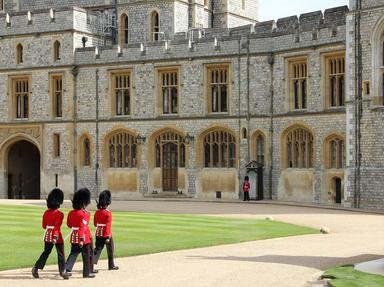Quiz Answer Key and Fun Facts
1. Religious - merciful - pushed for the use of the English language - valued education - improved the legal system - not a very good cook. Who am I?
2. Ongoing problems with the Danes - longest reign of any Anglo-Saxon king - poorly prepared to rule. Can you name me?
3. Last ruler of the Kingdom of Wessex - King of England in 1042 - his wife's brother, Harold, became ruler upon his death in 1066. What is my name?
4. Promised the throne of England - saw it handed to someone else - indignantly mounted a successful invasion from Normandy. Who am I?
5. A reign replete with family squabbles and onslaughts from his many sons - a very feisty wife he finally imprisoned in exasperation - the fair Rosamund. Who was this King?
6. Known as Lackland - the youngest son of the family - associated with a Great Charter. Can you name me?
7. Hammer of the Scots - Longshanks - Expulsion of the Jews from England - the first of a long list of names. Do you know my name?
8. Fifty year reign - his claim to French throne started 100 years war - father was deposed by She-Wolf of France and Roger Mortimer - turned England into a mighty power. Can you name me?
9. Battle of Agincourt - Treaty of Troyes - bad haircut - died young, leaving a nine months old son as heir. Who am I?
10. Lost all French possessions but Calais - saw the onset of the War of Roses - overthrown by my cousin of York - murdered in the Tower of London. Can you name me?
Source: Author
Creedy
This quiz was reviewed by FunTrivia editor
bloomsby before going online.
Any errors found in FunTrivia content are routinely corrected through our feedback system.

